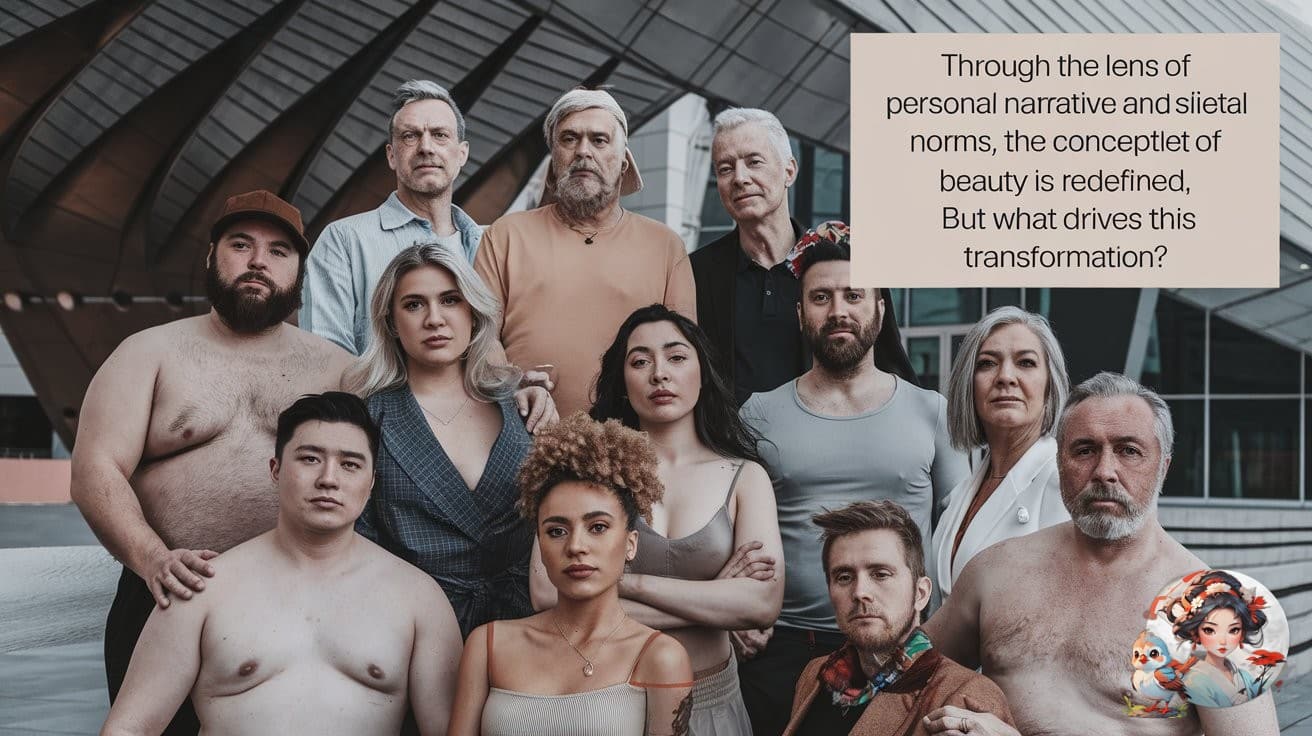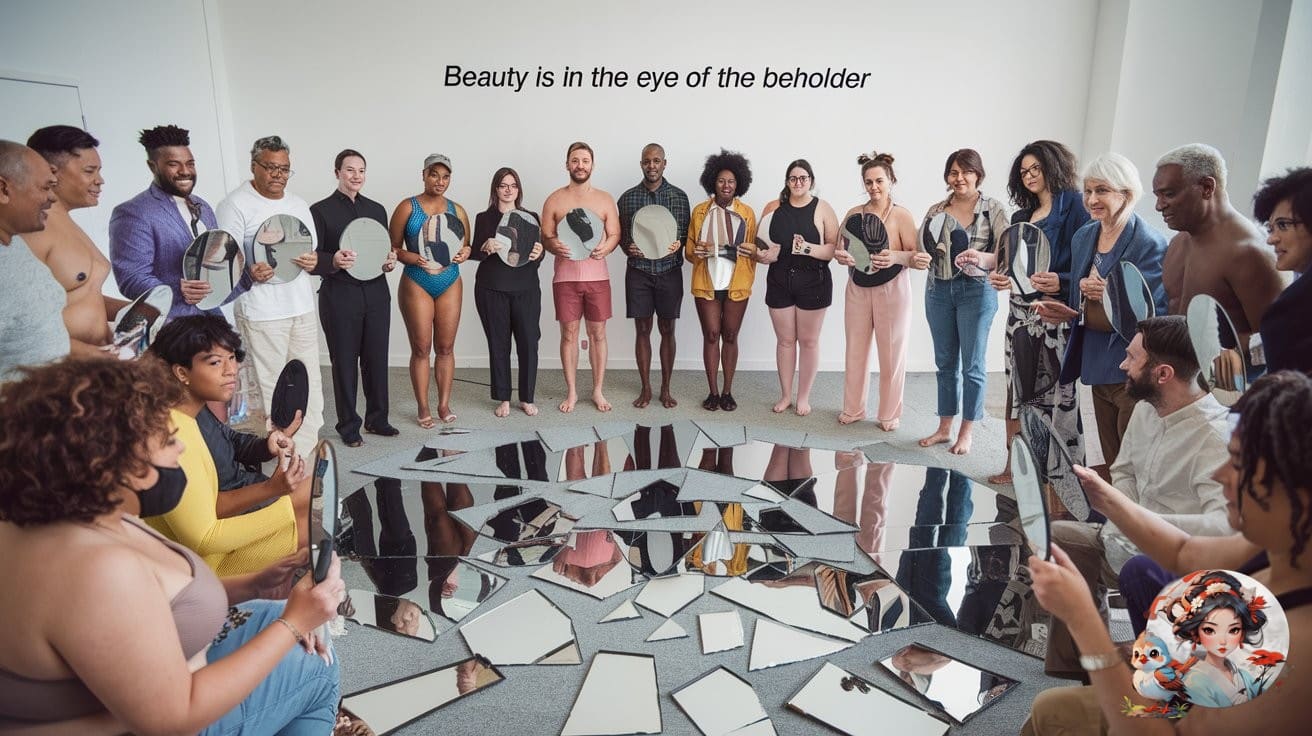The concept of beauty varies between cultures and individuals. Traditional standards emphasised uniformity, but personal experience and choice now play a greater role in defining beauty. Unique life journeys shape individual preferences and perceptions of beauty. Personal narratives and societal norms intersect to shape these perceptions. Broader cultural influences and individual experiences collide to create diverse standards of beauty.
Table of Contents
ToggleBeauty standards – a fascinating subject indeed. Research has shown that our perceptions of attractiveness are not solely determined by genetics, but are heavily influenced by personal experiences, cultural influences and media. I am reminded of a study published in Current Biology, which found that aesthetic preferences for faces vary by 50% agreement and 50% disagreement between individuals. This suggests that environmental factors play a significant role in shaping beauty standards.
As someone who is familiar with traditional Japanese beauty, I’ve observed how cultural and social factors shape individual preferences. Exposure to the media and interactions with peers strongly influence our perceptions of beauty. In Japan, for example, uguisu no fun – a traditional face powder made from the droppings of the Japanese nightingale – is prized for its beauty-enhancing properties. This highlights the importance of considering the complex interplay between individual experience and broader societal norms in understanding beauty standards.
In my experience, the Japanese concept of ‘wabi-sabi’ – finding beauty in imperfection – also plays an important role in shaping our perceptions of attractiveness. This aesthetic values the uniqueness of individual features rather than striving for an unattainable ideal. By embracing imperfection, we can foster a more inclusive and diverse understanding of beauty. Ultimately, standards of beauty are not fixed, but evolve through our interactions with the world around us.
Standards of beauty are shaped by many factors, including genetic inheritance. However, our individual experiences play a crucial role in determining what we find attractive. I’ve seen this in my years as a geisha, where unique interactions with peers and exposure to traditional Japanese art forms such as Kabuki theatre have greatly influenced my own perceptions of beauty.

Experiential influences can be as subtle as a conversation with a friend, or as overt as the media’s portrayal of beauty. These interactions serve as a window into individual aesthetic decision-making, revealing the complexity of attraction. For example, traditional Japanese beauty treatments emphasise the importance of natural ingredients such as uguisu no fun, a type of bird droppings rich in guanine, in achieving a smooth, radiant complexion. This appreciation of natural beauty is a result of our cultural heritage and individual experiences.
Empowering individuals to accept their unique preferences and perceptions of attractiveness is crucial. Rather than adhering to universal standards, we should celebrate our differences and recognise the role of personal experience in shaping standards of beauty. In doing so, we can promote a more inclusive and diverse understanding of beauty, one that values individuality over conformity.
In my own practice, I’ve seen how embracing individual preferences can lead to a more authentic expression of beauty. For example, some women may prefer a more subtle, natural look, while others may opt for a bolder, more dramatic style. By recognising and respecting these differences, we can create a more supportive and inclusive community that values beauty in all its forms.
Individual experiences and preferences shape perceptions of beauty. Traditional notions are being challenged as people’s personal tastes take precedence. Cultural influences that once dictated beauty standards are giving way to diverse perspectives.
Traditional Japanese culture values the unique qualities of each face rather than striving for uniformity. Skincare routines often include natural ingredients, carefully selected to enhance individual skin types. A delicate balance of cleansing, moisturising and nourishing promotes healthy, radiant skin. Uguisu no fun, the powdered droppings of Japanese nightingales, is a prized ingredient for gently exfoliating and polishing skin.
Demographically, this shift marks a significant milestone in the evolution of beauty. The emphasis is now on celebrating personal differences rather than conforming to societal norms. Features that were once considered ‘flaws’ are becoming defining characteristics of an individual’s unique beauty. Rather than hiding these features, many are embracing their distinctiveness.

Ultimately, the definition of attractiveness encompasses a wider range of characteristics and attributes. Individuals can reclaim their autonomy and freedom to choose what they find attractive, free from the constraints of traditional cultural expectations. A diverse definition of beauty permeates many aspects of life and society, contributing to a world where individuality is truly valued and respected.